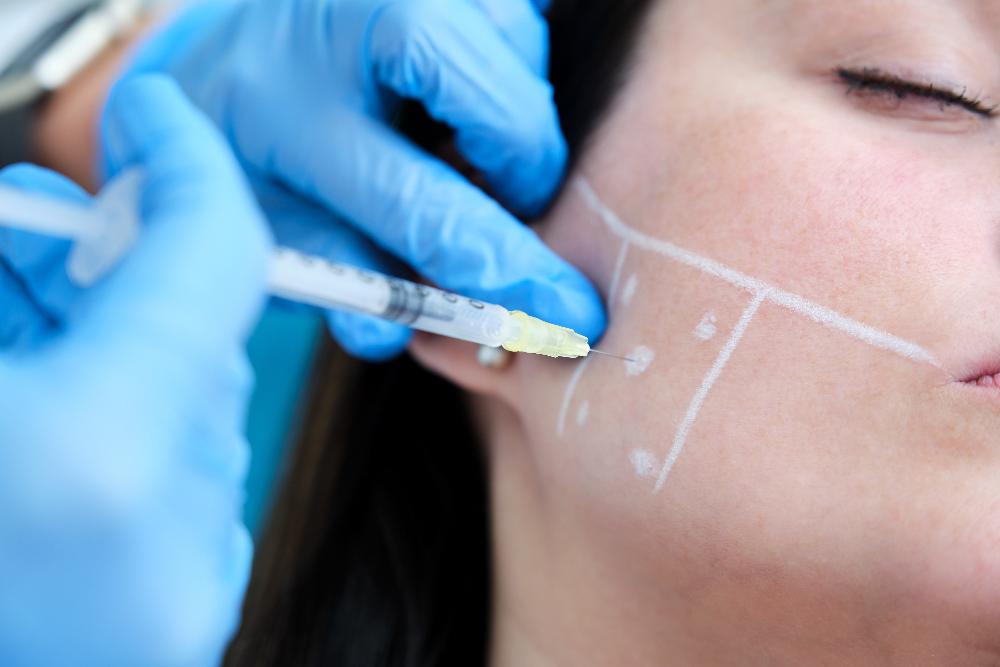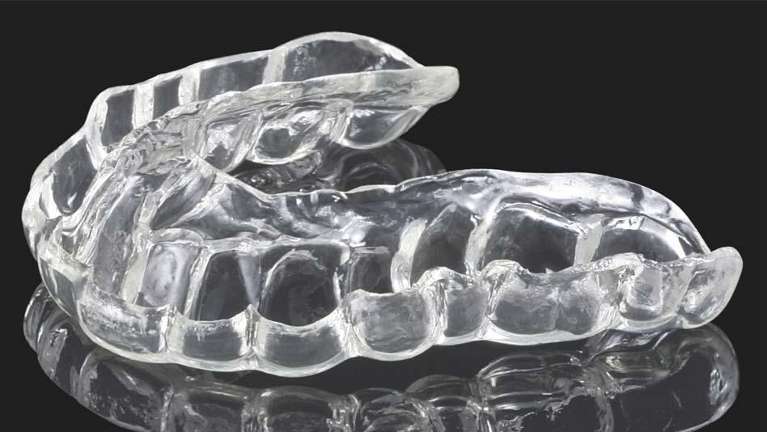
What Causes Bruxism?
- Stress and Anxiety: One of the leading triggers for bruxism is stress. Individuals experiencing high levels of stress and anxiety may subconsciously grind or clench their teeth, especially during sleep, as a coping mechanism.
- Malocclusion: Misaligned teeth or improper bite alignment can create an imbalance in the jaw, leading to bruxism, as the body attempts to find a comfortable resting position.
- Sleep Disorders: Conditions like sleep apnoea can cause interruptions in sleep patterns, leading to an increase in bruxism episodes.
- Lifestyle Factors: Certain lifestyle choices, such as excessive alcohol consumption, smoking, or consuming caffeine, may exacerbate bruxism.
What Are Some Common Bruxism Symptoms?
- Excessive teeth grinding or clenching, which may be loud enough to wake up your partner.
- Teeth that are flattened, fractured, chipped or loose.
- Worn tooth enamel, exposing deeper layers of your tooth.
- Increased tooth pain or sensitivity.
- Tired or tight jaw muscles, or a locked jaw that won't open or close completely.
- Jaw, neck and face pain or soreness.
- Pain that feels like an earache, even though it is not a problem with your ear.
- Dull headache starting in the temples.
- Damage from chewing on the inside of your cheek.
What Are the Long-term Effects of Bruxism on Oral and General Health?
- Chronic Jaw Pain: Persistent bruxism can lead to chronic jaw pain and discomfort, affecting quality of life.
- Tooth Loss: The combination of tooth wear, fractures, and gum recession can ultimately result in tooth loss.
- Insomnia and Sleep Disorders: Bruxism can disrupt sleep patterns, exacerbating sleep disorders and leaving individuals feeling fatigued during the day.
- Digestive Issues: The strain placed on the jaw can lead to digestive problems, such as acid reflux and irritable bowel syndrome (IBS).
What Bruxism Treatment Is Available?
- Orthodontic Treatment: In cases where malocclusion or misaligned teeth contribute to bruxism, orthodontic treatment can be highly effective. By correcting the alignment of the teeth and improving the bite, the excessive forces that lead to grinding and clenching can be reduced.
- Stress Management and Relaxation Techniques: Since stress is a significant trigger for bruxism, managing stress levels can have a profound impact on reducing teeth grinding. Techniques such as meditation, deep breathing exercises, yoga, and counseling can help individuals better cope with stress, consequently alleviating bruxism symptoms.
- Dental Splints: Dental splints, also known as nightguards, are custom-made appliances worn during sleep. They act as a barrier between the upper and lower teeth, preventing direct contact and minimizing the impact of grinding.
- Botulinum Toxin (Botox) Injections: By targeting the overactive muscles, Botox injections can effectively interrupt the cycle of teeth grinding, thereby providing relief and preventing the damage caused by bruxism. The procedure is relatively quick and minimally invasive without affecting normal jaw function or shape or causing any significant side effects. Botox injections address the root cause of bruxism by targeting the muscle tension itself. This can be particularly advantageous for individuals whose teeth grinding is primarily due to neurological factors, rather than tooth misalignment. Moreover, Botox injections provide relief without the inconvenience of wearing a dental appliance during sleep, making it an attractive option for many patients.

If you want to know more about the bruxism, or suspect that you may be suffering from it, you can book an appointment at our Paddington Dentistry clinic. Our team of dentists have the knowledge and expertise to properly diagnose the condition, and provide you with a customised treatment plan that will have you healed in no time.
